Letterpress Workshop – Documentation & Self-Reflection
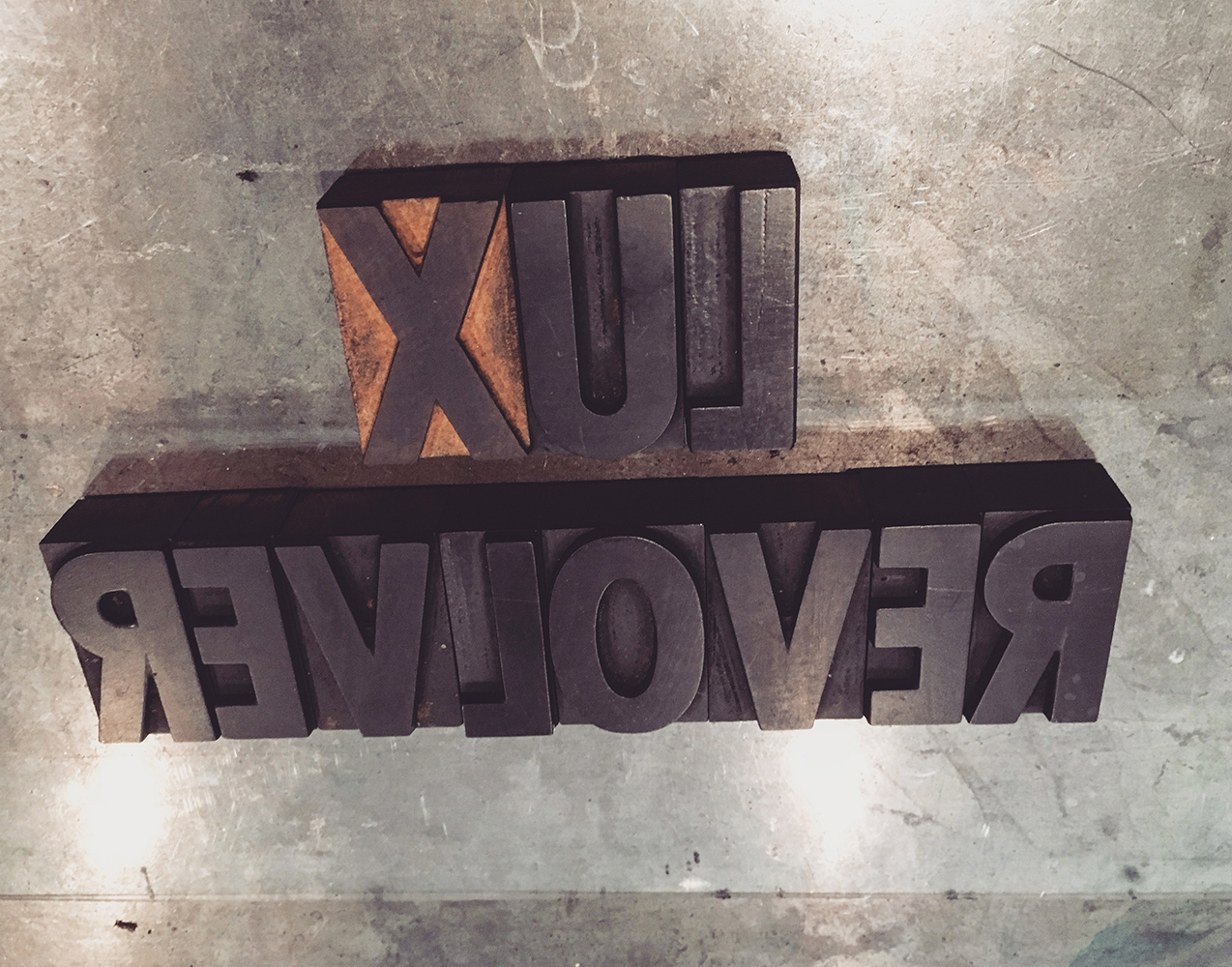
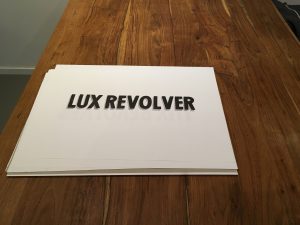
Lux Revolver Poster printed with wooden letters (and shadow)
Delving deeper into the history of letterpress and printing presses, I learn many interesting facts such as that historically movable type was in use in China and Korea for centuries before Gutenberg affected change in Europe during the 15th Century. The impressive illuminated manuscripts hand drawn by the monks up to the 14th Century, show the impressive ingenuity to use what methods and tools were available to people at their time.
This realisation leaves me feeling inspired to research further into my own contemporaries today.
After looking into Berlin practitioners and letterpress studios, I endeavour to go and visit the studio of Erik Spiekermann, the well-known German designer and typographer, called 98a at Kurfuerstenstrasse in Berlin.
Furthermore, on my list of places to visit is also the letterpress printing place named Die Lettertypen in Berlin Adlershof, who feature linotype presses as well as an original Heidelberg Cylinder printing press.
Last but not least I will plan a visit to the Buchstabenmuseum, the world’s only typography museum, under the S-Bahn station Bellevue. The museum is currently closed, yet open for special appointments, and when I contact Barbara Dechant, the owner of Buchstabenmuseum, she very kindly offers her help.
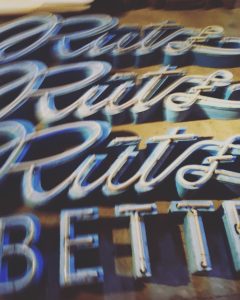
Buchstabenmuseum Berlin
Reflection of the Letterpress Workshop at Volta Press:
I look through the book of available fonts at Volta Press studio, where today’s workshop is being held. First of all, I pick out a chunky looking wooden letter with the name 12 cicero Erbar. Cicero is a measurement system that was being used in typography from the 15th Century, mostly in Continental Europe, from France to Italy.
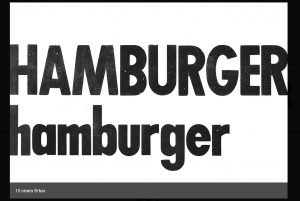
12 cicero Erbar – Copyright Volta Press
Next, I decide on the text to print, and choose the name of my company, Lux Revolver.
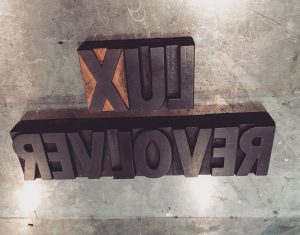
Then the type needs to be set.
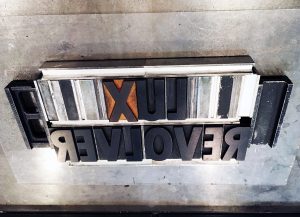
Next, it is time to lock the type into place.
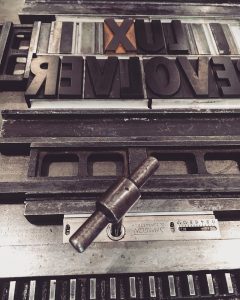
Then the linotype press needs to be set up.
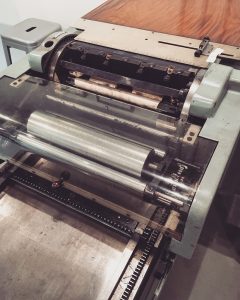
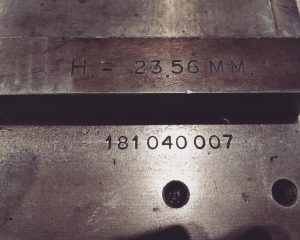
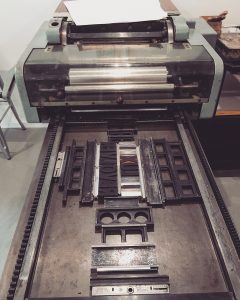
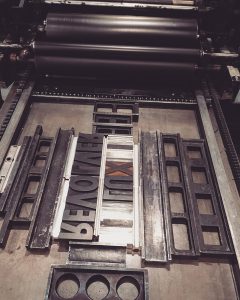
Locking the paper into place.
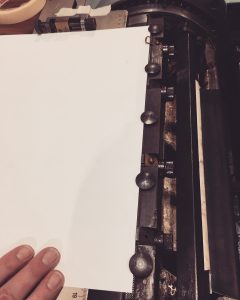
I decide that the most elegant print will be black ink on white paper.
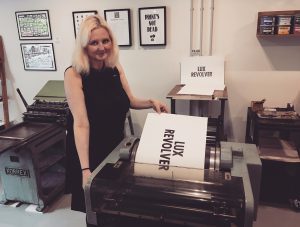
After inking up the machine, I’m ready to go!
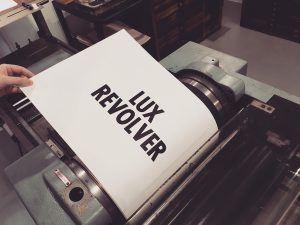
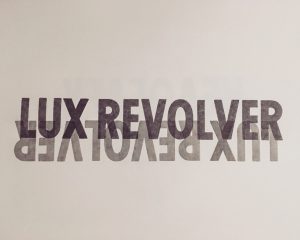
I love the experimental side to letterpress printing – ie creating a shadow, printing double or triple text, upside down, back to front etc.
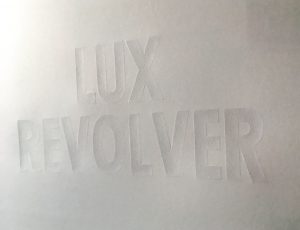
I also love the imprint it can leave on paper, and how you can play with more or less imprint on a page.
After the first print run, it’s time to change the text to run over one long line, instead of two lines:
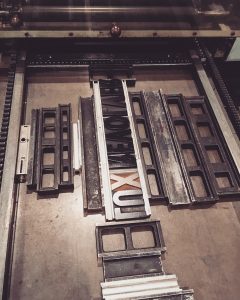
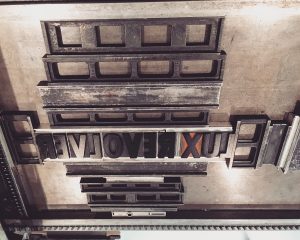
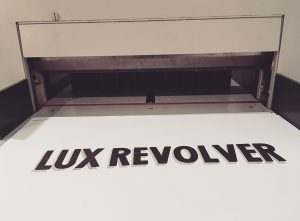
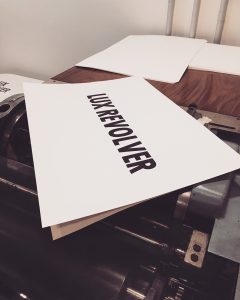
Reflecting on the day, I truly relished the ‘analog process of letterprinting’: arranging the letters, setting up the machine, deciding on the colour of the ink, mixing it, making it warm, inking the machine, choosing the paper and size, carefully adjusting the paper into the correct position, making sure the machine is in the right mode, then rolling it over the letters at not too fast and not too slow a speed – is a great experience! Focus on the task at hand, no distractions!